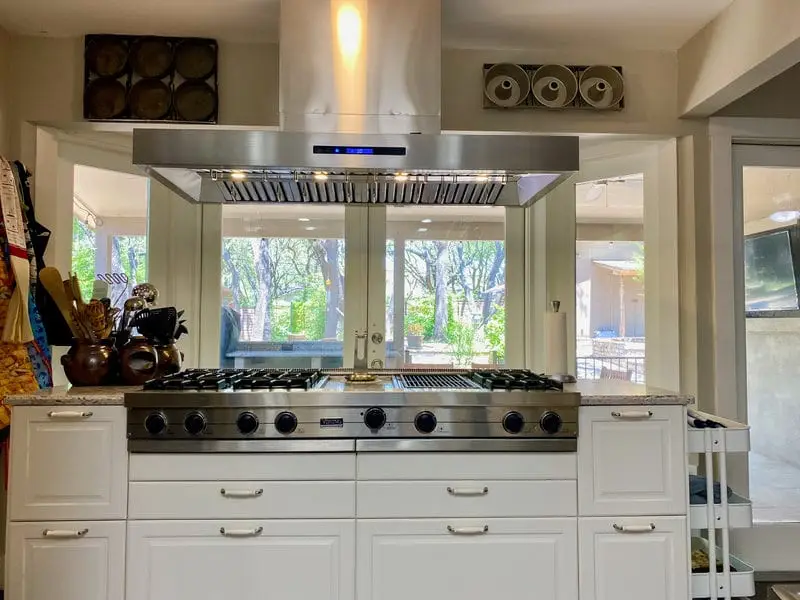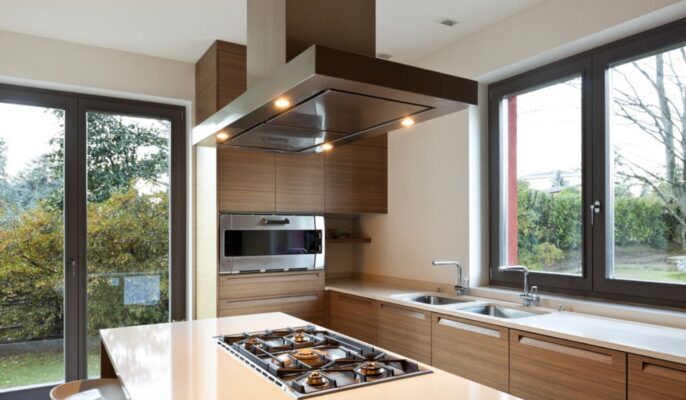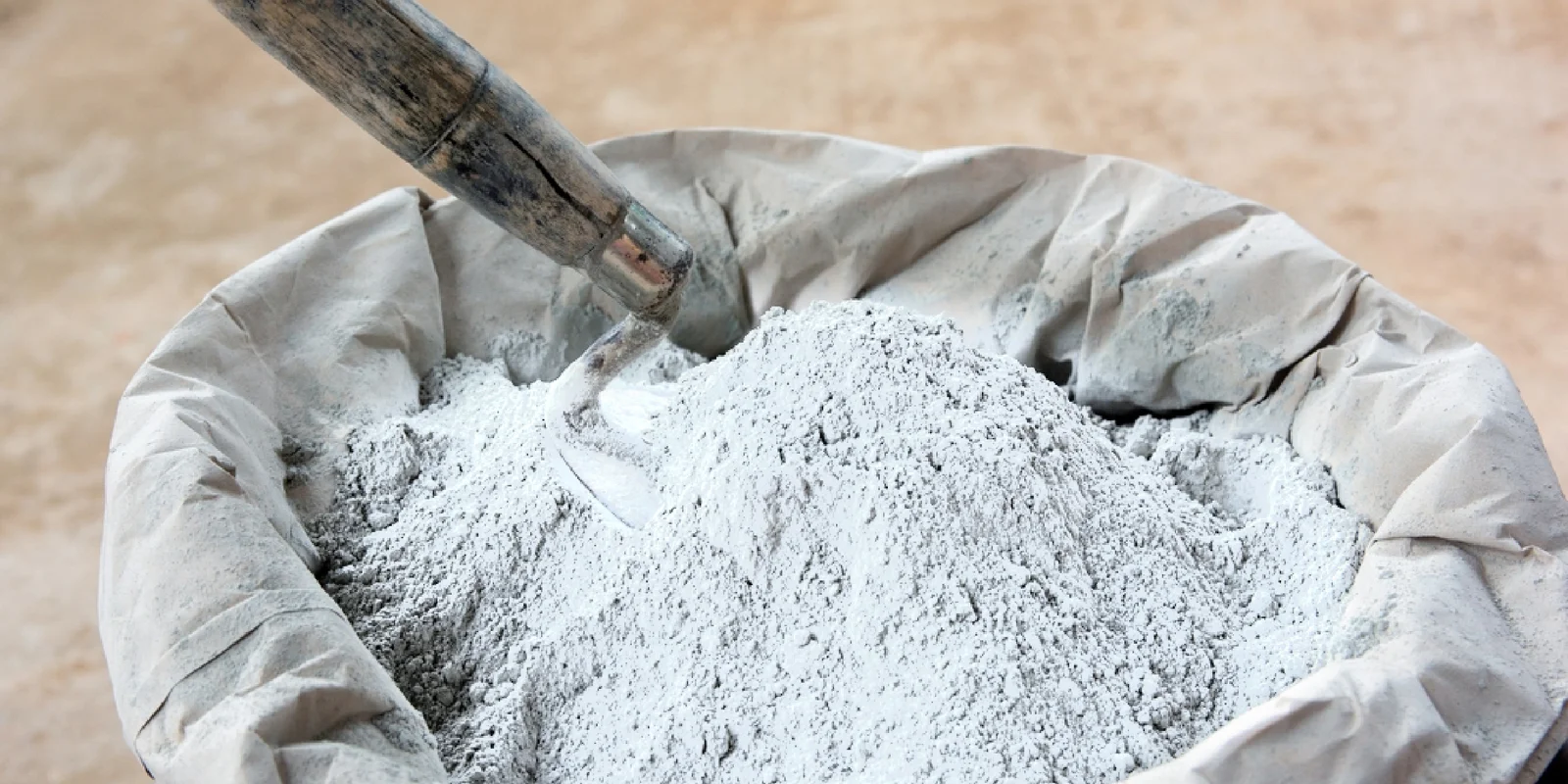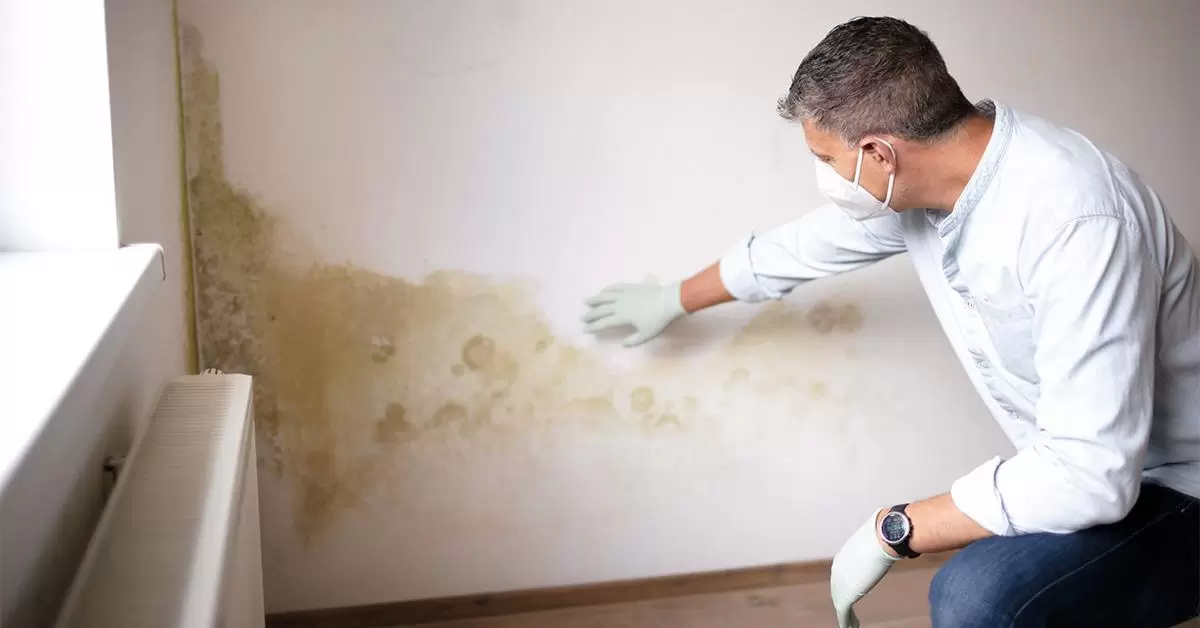Table of Content
▲
Cooking in the summer can make your kitchen extremely hot and uncomfortable. Luckily, there are several effective ways to minimize the heat and make your kitchen cooler and more pleasant. This article offers five practical tips to help reduce kitchen heat during the summer, ensuring a more comfortable cooking experience.
Keep Your Kitchen Cool This Summer: Five Practical Tips
Cooking in the summer can make your kitchen uncomfortably hot. Fortunately, there are effective ways to minimize the heat and create a cooler, more pleasant environment. Here are five practical tips to help you reduce kitchen heat during the summer:
1. Use Exhaust Fans and Range Hoods

One of the easiest ways to reduce kitchen heat is by using exhaust fans and range hoods. These devices remove excess heat and steam from cooking, lowering the room's temperature. According to the U.S. Department of Energy, using an exhaust fan can help ventilate hot air out of your kitchen, significantly reducing heat levels. Turn on the fan before you start cooking and leave it running for a few minutes after you finish to clear out any residual heat.
2. Cook with Smaller Appliances
During the summer, opt for smaller cooking appliances like microwaves, toaster ovens, or slow cookers instead of the stove or oven. These appliances generate less heat and use less energy, helping keep your kitchen cooler. Research from the Energy Information Administration shows that microwave ovens use up to 80% less energy than conventional ovens, resulting in lower heat production and a noticeable difference in your kitchen’s temperature.
3. Invest in Good Ventilation

Improving your kitchen’s ventilation can significantly reduce heat. Consider installing a ventilated window or an additional fan to increase airflow. Good ventilation helps dissipate heat more quickly and keeps the air in your kitchen fresh. The American Society of Heating, Refrigerating and Air-Conditioning Engineers recommends enhancing natural ventilation with strategically placed windows or supplementary fans to effectively manage indoor temperatures.
4. Opt for Cooler Cooking Times
Plan your cooking times to avoid the hottest parts of the day, typically from late morning to late afternoon. Cooking in the early morning or evening can prevent heat buildup during peak temperatures. This adjustment not only helps keep your kitchen cooler but also reduces the burden on your home’s cooling system, potentially lowering your energy bills.
5. Use Reflective Window Treatments
Investing in reflective window treatments or using blinds and curtains can block out excess sunlight, which significantly contributes to indoor heat. Products like reflective window films can reduce solar heat gain by up to 70%, according to the National Renewable Energy Laboratory. Keeping blinds closed or adding window treatments can make a substantial difference in how much heat your kitchen retains on sunny days.
By implementing these five strategies, you can enjoy a cooler kitchen throughout the summer months. Using efficient cooking methods and appliances, enhancing your kitchen’s ventilation, and managing sunlight exposure all contribute to a more comfortable and enjoyable cooking environment. The key to a cooler kitchen is managing heat sources and improving air circulation.
Also Read: How to effectively remove oil and grease from kitchen walls?

_1717484616.webp)







_1771582392.webp)
_1771577585.webp)
Ans 1. Use small appliances Minimizing use of the oven and stove can help you avoid heating up your kitchen. Small appliances can cook your food just as well while emitting less heat than large appliances. Try using an air fryer instead of your wall oven, or a panini press instead of the stovetop.
Ans 2. Q5: Does the kitchen chimney reduce heat? Yes, chimneys remove excessive heat.
Ans 3. Can AC be used in kitchen settings? Despite the concerns about smells and heat distribution, it is generally fine to put air conditioning in your kitchen. The air conditioning unit can withstand changes in heat and humidity that occur in a typical kitchen during cooking.
Ans 4. Maintain at least a 4 cm clearance between equipment and the front and back of the cabinet. And finally, ensure all unused cabinet space is closed off with blank panels to prevent mixing of hot and cold air. You can increase ventilation even more by installing fans to actively circulate air through cabinets.
Ans 5. There are many different ways to cool down a hot kitchen. You can install a window air conditioner, use a portable air conditioner or buy a whole-house fan. You can also use fans, ice packs, and frozen water bottles to cool your kitchen down.
Ans 6. Slow cooker and multi-cookers Slow cookers not only conserve energy—meaning they won't heat up your house—they also bring out rich flavors in meals and do the cooking for you throughout the day. Multi-cookers also use less energy, and many meals can be done in one hour or less. And they both cut down on dirty dishes!